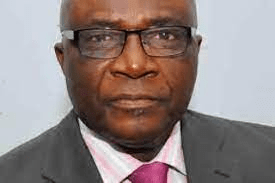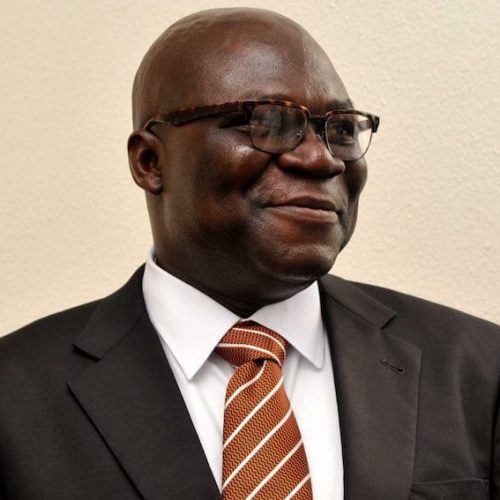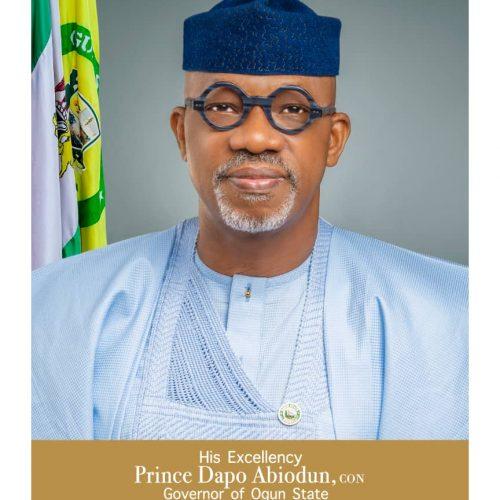May I congratulate Alhaji Aliko Dangote for finally giving birth to a “bouncing” refinery after being in the labour room for a decade. It is heartwarming to learn that father and baby are doing well. Of all the adventures Dangote has embarked upon in his life — starting from his primary school days when, according to him, he was buying sweets with his lunch money and giving them to the maiguard to resell for him — the refinery project is surely the roughest and the toughest. For someone who took a multibillion dollar loan at N160/$ and has had to repay at the prevailing exchange rate per time, the refinery venture is enough to ruin his empire and turn him to a forgotten man. But he survived.
I am also thankful that I am alive to witness history. Since the early 2000s, I have been a fierce advocate of building of refineries in Nigeria, although my agitation was that the government should do it since the private sector was reluctant because of thorny issues around deregulation and subsidy. When Dangote announced in 2013 that he was going to build a refinery, I was over the moon. I celebrated it with an article, ‘The Refinery We’ve Been Praying for’ (THISDAY, September 22, 2013). As at then, he was thinking of 400,000 barrels per day and working with a budget of $9 billion, covering two other petrochemical projects in Edo and Ogun states which were initially in his plans.
I asked him why he would build a refinery despite the failure of the Nigerian government to deregulate the downstream sector. Most private sector investors had said they would not build refineries without deregulation. Dangote replied: “With or without deregulation, there is nothing stopping anyone from building a refinery. I am not a marketer. All I will do is buy crude oil at the market price, refine and sell to marketers at the market price. It is marketers that deal with subsidy. If government continues to subsidise, marketers can buy products from us and then collect the subsidy from government. If not, they can sell to motorists at the market price. It’s not complicated.”
Now that the refinery has taken off, the notion that it will bring down the pump prices of petrol and diesel, etc, needs to be toned down. This notion has been promoted by unionists and activists for decades: that local refining would eliminate subsidy. No, it won’t. Dangote Petroleum Refinery Ltd buys crude oil at the going rates in the international market. It will price its refined products accordingly. You can’t buy raw materials at higher prices and sell the finished products at lower prices. Marketers will buy the products from the refinery and sell to motorists. It is now left for the Nigerian government to decide whether or not to subsidise at the point of purchase by Nigerians.
Dangote reminded me then that when marketers imported petrol from foreign refineries, they bought at market prices over there before claiming subsidy payments from government. He went a step further by saying Nigeria should start focusing on exporting petroleum products. “The way forward is for us to start exporting refined products rather than crude. We will get far much better value that way. In the next five to seven years, we should stop exporting crude altogether. Apart from South Africa, the refining capacity in Sub-Saharan Africa is grossly insufficient. Angola has a refinery that can only handle 30,000 barrels per day, whereas they consume 120,000 barrels,” he said.
While promising that his own refinery could be completed by 2016, he projected that other African countries would be coming “to buy products from our refinery… that is our strategic plan”. A lot of things changed along the line. Costs ballooned and deadlines were shifted various times. I must confess herein that at a stage, I was doubting if the refinery would ever be. This was worsened by unending negative media reports about the hiccups and setbacks. But on January 13, 2024, the refinery finally came alive. Mr Femi Otedola, his billionaire friend, calls it the “eighth wonder of the world”. For those of us who had followed the trajectory for so long, this was indeed momentous.
The stats, as made public by Dangote Refinery, are very impressive: sitting on about 2,635 hectares in the Ibeju-Lekki export-processing zone, the $19 billion facility is the world’s largest single-train 650,000 barrels per day refinery with a polypropylene plant that will produce materials for plastic packaging, plastic parts for machinery as well as fibres and textiles. For comparison, the combined installed capacity of Nigeria’s four sick refineries is 445,000 bpd and it has been so since 1989, when President Ibrahim Babangida inaugurated Port Harcourt II. Both Port Harcourt refineries were built to be able to refine 210,000 bpd; Warri, 125,000 bpd; and Kaduna 110,000 bpd also. All on paper.
Several stats have been published by Dangote Refinery, but the one that easily pops at me is that when producing at full capacity, it can meet all our petrol, diesel and aviation fuel needs. In other words, we would not have to import refined products again. I find this satisfying: my dream has always been that we would stop importing products. We pride ourselves as an oil-producing giant but we are not even enjoying most of the benefits in the industry chain because of poor thinking. I used to campaign vigorously that government should take the bull by the horn by investing in a mega refinery to meet our local needs. It could then lease out management and sell it off in the future.

I received a long lecture from the CEO of a downstream company at the time who told me emphatically that building refinery was a waste, that it was not a profitable business. He said no new refineries were being built globally. He also said, ominously, that there would be little or no difference between local refining and importation of petroleum products, concluding that the business case for a refinery was bad. “The difference between refining in Nigeria and importing from Europe is shipping cost,” he said and I paraphrase. “If you may know, shipping is the cheapest form of transportation in international trade. There is no advantage with having a refinery in Nigeria.”
I did not agree with him, even though he sounded convincing. I was thinking of the local jobs and the value chain, but I was not ready to argue my case. He was enjoying so much patronage in the fuel importation business under the President Obasanjo administration that I did not expect him to agree with my proposal. And he had a strong voice in the policy direction of the government in the oil sector. Government officials consistently said privatisation was the way to go and that Obasanjo was not going to build a new refinery. Since then, we have been spending billions of dollars on treating our sick refineries without success. (Well, the jury is out on the latest Port Harcourt rehabilitation).
Now that Dangote Refinery has seen the light of the day, I am thinking of what might have been. If we were a thoughtful nation, we should be having regrets. Maybe someone would do the math one day and unearth the amount of forex we have been burning on fuel imports since 1999. There are many reasons for the sorry state of the naira today and fuel importation cannot be considered as a trivial factor. Fine, we are earning billions of dollars from oil export, but so also are we concurrently burning our forex income on fuel imports. The resources that should go into building our reserves are depleted on importing fuels. Let us now hope that forex demand for fuel importation will end.
The second regret is the way we have been trading away value through crude swap deals in the last 10 or more years. We created an arrangement under which we would basically barter crude oil for fuel imports. Using traders, we would exchange a barrel of crude valued at $70 for litres of petrol worth $70. I have always been wondering: what happens to the other products and byproducts in the same barrel? For all you care, those ones could be worth another $70 (just guessing). What a waste! But that is what happens when you have more oil than sense — or, to put it less dramatically, when the buccaneers, who know where all the value is, collude with those in authority to skin us.
Now that Dangote Refinery is onstream, we should expect an end to this. There will be byproducts both for export and local utilisation. Fertilisers aside, there is the carbon black which is raw material for paints, inks, rubber products, car tires and food colorants. The refinery plans to produce bitumen, which Nigeria currently imports. These are some of the benefits we threw away for decades, swapping crude oil for petrol and arguing that shipping cost is the only difference between local refining and fuel importation. Take a moment to imagine the lost forex revenue and the jobs that we bartered away while complaining that unemployment, poverty and crime were on the rise.
All said and done, we cannot undo the past. We took a lot of missteps in the past two decades. Some were genuine mistakes. Hindsight is usually a perfect 20/20 and we can all become wise after the event. But some missteps were self-serving. Remember that the fuel import and subsidy regimes created a generation of rent-made billionaires who were nothing but devourers and cankerworms. The past can remain in the past while we make the best of a possible new order. I know many people are suspicious of Dangote because of his business practices, but that is down to regulatory failure. I want to sincerely hope that the success of this project will attract more investors to the sector.
If the Port Harcourt Refinery really works as promised by the Nigerian National Petroleum Company (NNPC), that means we could start exporting refined products sooner than later, having achieved self-sufficiency in Nigeria. That would be a dream come true for me. I have always hoped that Nigeria would be among the world’s biggest exporters of refined products. The forex income is the first thing that jumps at you today given the parlous state of the national currency, but there are several other benefits. What about the tens of thousands of jobs? What about the potentially huge new economy around the petrochemical industry? Dangote took a big risk. Let us start enjoying the benefits.
AND FOUR OTHER THINGS…
FCT KIDNAPPERS
The Federal Capital Territory (FCT), Nigeria’s seat of power, has come under unwanted attention recently with the upsurge in kidnappings. It has never been crime-free — we should remember how Boko Haram used to bomb FCT with ease — but hopes that it has become a safe haven in recent years are fast disappearing. The brutal nature of the kidnappings — a young student was killed while ransom money was still being mobilised — might suggest a touch of terrorism. Kidnappers hardly kill their victims who are co-operating with them, but terrorists are usually desperate and murderous as they seek to raise funds for their operations. This is for the security agencies to consider. Terrifying.
IBADAN ARMAGEDDON
Wednesday night brought trauma to Ibadan, Oyo state, with the explosion that rattled the city, grinding houses to dust and sending five people to early graves. Those who survived need attention. Some will develop hearing problems, mental health issues and PTSD. Treating physical injuries and discharging patients from the hospital should be complemented with therapy. I can see we are trying to blame foreigners for the disaster, but maybe we need to look inwards too. What sort of system allows a private residence to stockpile explosives? This is a national security issue. The trucks must have passed various security checkpoints after paying the dirty tolls on its way to that house. Porous.
TWO PLANETS
The company at the centre of the social register verification contract saga is New Planet Projects Ltd, founded in 2009 by Mr Olubunmi Tunji-Ojo, now minister of interior, and not Planet Projects Ltd, as I mistakenly wrote last week. Planet Projects Ltd, the transport infrastructure company, was founded by Mr Biodun Otunola and is best known for building the Oshodi bus terminal. It was registered in 2007. Although I am not making any excuses, the Corporate Affairs Commission (CAC) surely created a room for the mistaken identity. By just adding “new” to an existing name, you can get the CAC to register your company with the help of insiders, even when it could amount to “passing off”. Chaos.
NO COMMENTS
On Thursday, Mr Ola Olukoyede, chairman of the Economic and Financial Crimes Commission (EFCC), said something we knew all along but had been silent upon for years: that the anti-graft body stinks. The elephant in the room. “The craze and quest for gratification, bribes and other compromises by some of our investigators are becoming too embarrassing and this must not continue,” he lamented. We should pray for him as he prepares to take on the monsters within. Olukoyede may also want to find out why Nigerians pay N60,000 under the table to get the SCUML certificate. Restoring public faith and confidence in the commission will definitely take a while, but it is worth a try. Uphill.






















